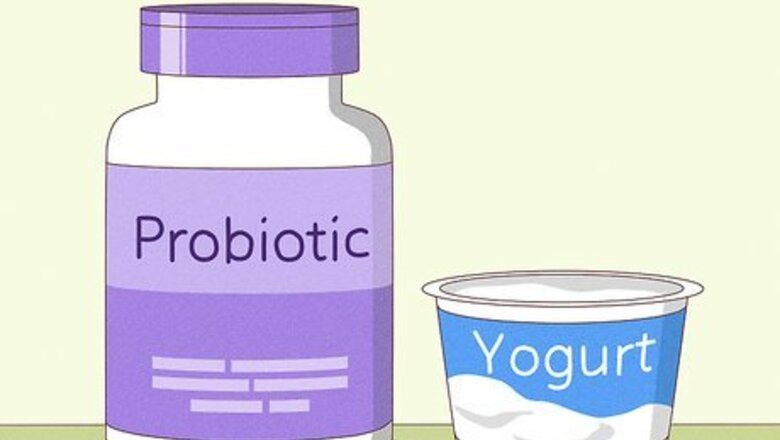
views
Rebalance your gut bacteria with probiotics.
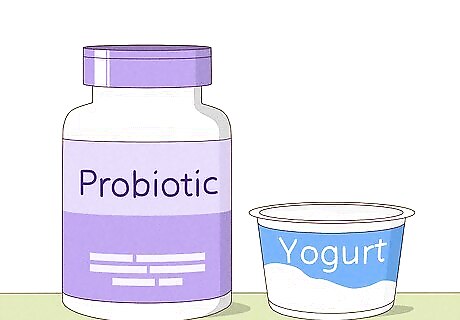
They also help lessen unhealthy bacteria in your gut. In doing so, they can reduce bloating brought on by gas. To increase the probiotics in your diet, eat fermented foods like kimchi, pickles, and yogurt. If you're not a fan of probiotic foods, take a probiotic supplement according to the dosage instructions on the label. Another option is probiotic drinks, like kombucha or kefir.
Try activated charcoal.
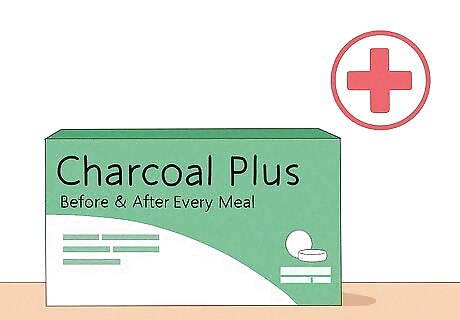
Taking these before and after every meal can help reduce symptoms. More research is needed to confirm this natural remedy, but many use it to help ease bloating. Consult your doctor first before trying out this method. Once you get the okay from your doctor, take the tablets according to the dosage on the product label before and after each meal. The following contain charcoal: Charcoal Plus Actidose-Aqua
Use products containing Simethicone.
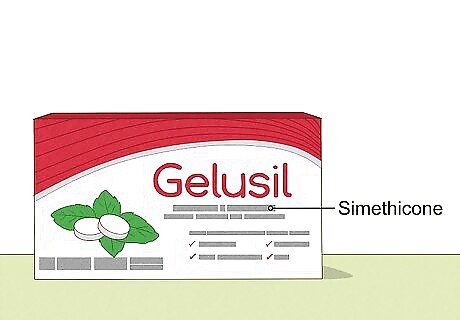
These medications break up gas bubbles in your digestive tract. This can help ease bloating and other symptoms of gas. Take the product according to the product label. Usually, you take the product 4 times a day, one after every meal plus one before bed. Common brands include: Mylanta Gas-X Mylicon Gelusil
Take Alpha-galactosidase when you eat gassy foods.
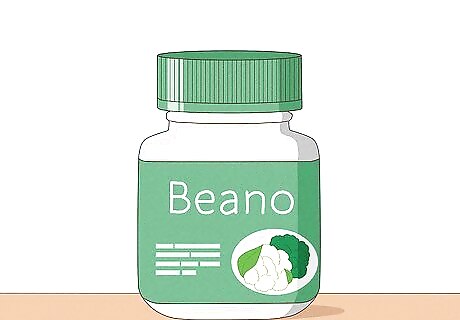
Do this if you don't want to part with foods like beans and cruciferous veggies. Alpha-galactosidase is an enzyme that helps your body break down foods without producing as much gas. This can help ease any bloating. To try out this method, purchase Beano or Beanassist at a local pharmacy. Take the product according to the instructions on the label (usually right before every meal). Beano and BeanAssist are available as tablets or drops.
Take lactase enzyme supplements.
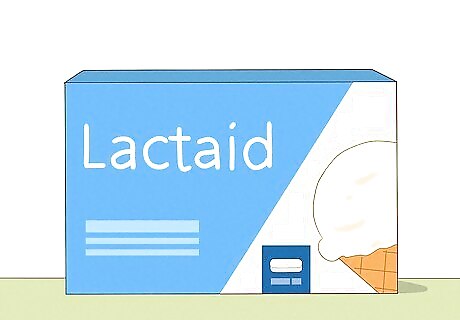
Many people who are lactose intolerant may still crave dairy products like ice cream. If this describes you, you don’t have to give up dairy to reduce bloating. Use supplements to supply your body with the enzymes it needs to process dairy. Common brands are: Lactaid Dairy Ease.
Eat more small meals to reduce constipation.
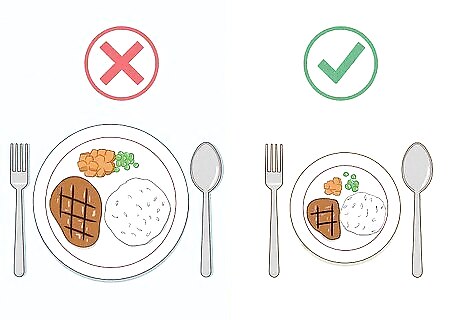
Eating small meals helps keep your digestive system busy. Eating 3 heavy meals a day can lead to food not moving through your system properly. When stool has extra time to ferment in your bowels, it produces more gas symptoms like bloating and stomach pain. Make frequent meals a habit by eating less at your normal meal times and add a snack between breakfast and lunch and again between lunch and dinner. Avoid eating 3 large meals a day, and try not to eat a big meal right before you go to bed. Try to eat breakfast about an hour or hour and a half after waking up. Then, eat meals once every 3-4 hours with snacks in between.
Eliminate habits that cause you to swallow air.
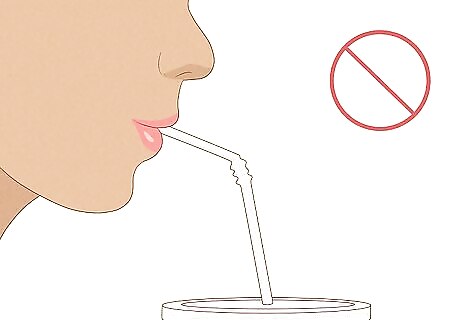
People often swallow air without recognizing that they are doing it. The air gets trapped in your system and causes bloating and gas as a result. To reduce the amount of air you swallow in a day, avoid smoking, sipping from drinks with a straw, eating too fast, and chewing gum. This will hopefully ease your bloating symptoms! Smokers often swallow air when they smoke, leading to bloating and gassiness. You can reduce bloating and help your overall health by quitting. When you use a straw, you suck in air. Ditch the straw to help ease your bloating symptoms (and help the environment, too). Eating too fast and not taking enough time to chew can also cause you to swallow air. Focus on your chewing and make a conscious effort to eat more slowly. Chewing gum makes you produce saliva, which causes you to swallow more often. As a result, you swallow more air, too.
Eat less fiber.
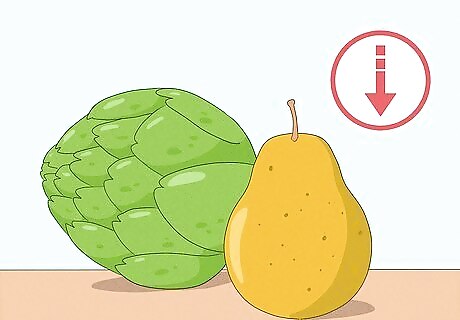
Though healthy, fiber increases the amount of gas in your bowels. This can leave you feeling bloated and uncomfortable. Avoid or reduce fruits and vegetables like pears, asparagus, brussels sprouts, and artichokes. Steer clear or reduce your intake of whole wheat and bran as well. If you have recently changed your diet to include more fiber, either by taking supplements or switching to whole-grain foods, ease into your diet slowly. This will give your body a chance to adjust.
Cut back on fatty foods.
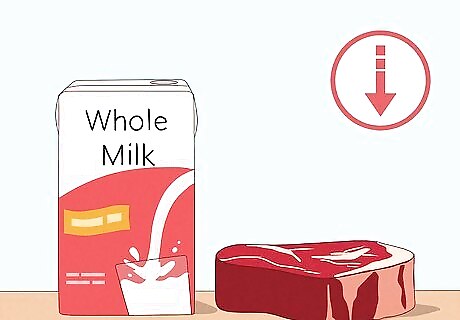
Your body digests fatty foods slowly. This causes more gas to generate as the food breaks down, making you feel bloated and gassy. Reduce your consumption of fatty red meats and eat lean meats like fish and poultry instead. Drink low-fat or skim milk instead of whole milk. Though it might be hard to part with fatty comfort foods, making these changes can really ease bloating symptoms. Cooking at home can also really help, as restaurant food is usually rich in cream, butter, and oil.
Keep the artificial sweeteners to a minimum.
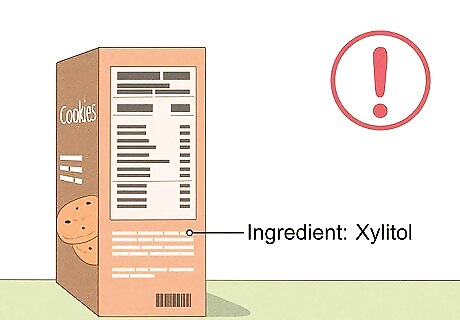
Sugar replacements can be difficult to process. This can lead to bloating and gas during the digestion process. Examine the packaging on any diet foods your purchase, like low-calorie foods. Avoid the following ingredients: Xylitol Sorbitol Mannitol Maltitol Syrup
Stay away from dairy if you're sensitive to lactose.
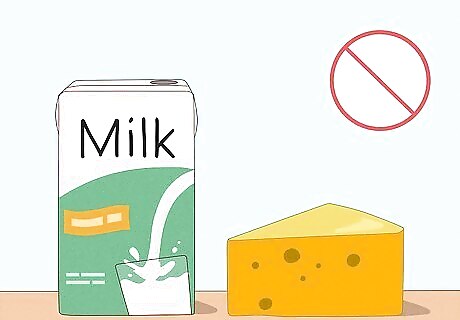
Many people lose their ability to digest milk products as they age. Gas and bloating are common symptoms. Evaluate whether your symptoms occur after eating dairy products. If so, you may want to reduce your dairy intake and see if that helps. Dairy products to limit may include: Milk. Ice cream. Cream. Cheese.
Take it easy on the salt to prevent water retention.
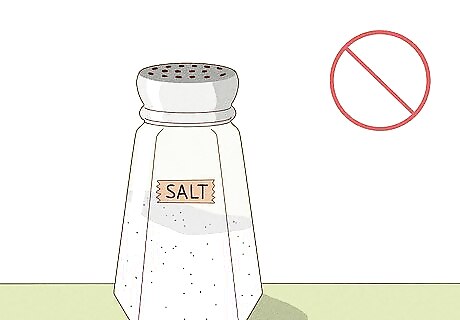
Salt makes you thirsty, which causes your body to hold fluids. If you frequently feel thirsty after eating, reduce your salt intake. Don't add table salt to your food. Steer clear of adding salt to your water to cook pasta and rice. Opt for low-sodium canned foods. Eating out less can also help, as restaurants often add a lot of salt to their food for extra flavor. If you're used to adding table salt to your food, take the shaker off the table to get out of the habit.
Limit fizzy drinks.
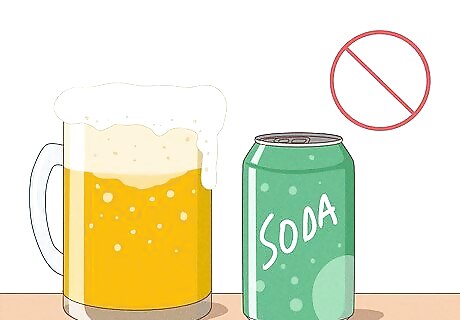
Carbonated drinks release carbon dioxide gas into your system. By cutting them out of your diet, you can lower the amount of gas you have in your gut. This can significantly reduce bloating! These drinks include: Carbonated sodas and sparkling water Alcoholic beverages like beer, sparkling seltzer, and mixed drinks that include club soda and tonic water.
Exercise for 15-30 minutes 5 times a week.
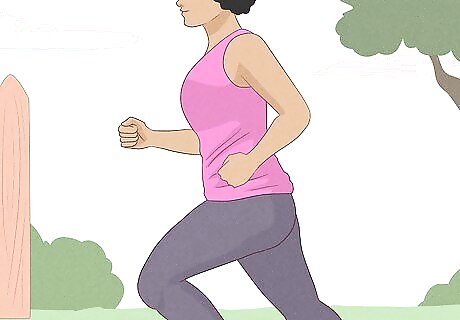
Getting moving helps your body digest food properly. In doing so, it eases symptoms of bloating. Engage in 75-150 of aerobic exercise per week, or 15-30 minutes five times per week. If you have health problems like diabetes that may make it unsafe for you to exercise, consult your doctor before starting. If you're new to exercise, start out easy and work your way up to more strenuous exercise.
Manage stress to reduce its impact on your digestive health.

Stress hormones can alter your digestion. This can lead to gas symptoms like bloating. If you're under a lot of stress, use relaxation techniques like meditation, yoga, and deep breathing. Getting enough sleep each night, meaning 8-10 hours each night, can also reduce feelings of stress. If you're particularly stressed about something, it can trigger a fight-or-flight response in your body. In doing so, digestion can slow down or stop completely. This is where digestive issues like bloating come in.
Go to a doctor if symptoms persist.
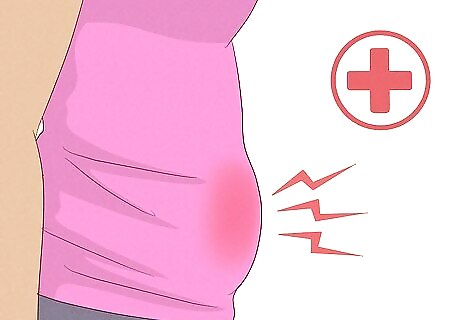
The bloating may be a sign of an underlying condition. If you try out these methods and the bloating continues, or the pain is so severe that it starts to disrupt your life, make an appointment with your doctor. They can help you determine what may be causing the bloating and prescribe your specific treatment plan. Potential conditions that could cause bloating include irritable bowel syndrome, an obstructed bowel, heart diseases, appendicitis, and gall stones. Be sure to go to the doctor if the bloating is accompanied by other symptoms like persistent nausea, black, tarry stool or stool with bloody streaks, severe diarrhea or constipation, chest pain, and unexplained weight loss.



















Comments
0 comment